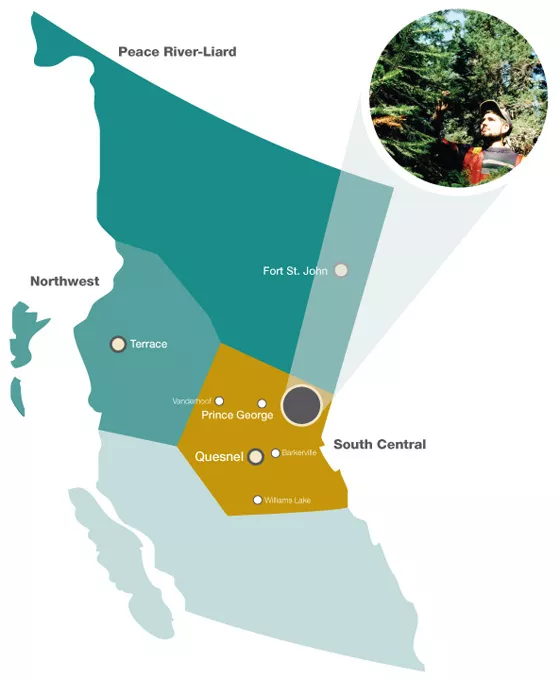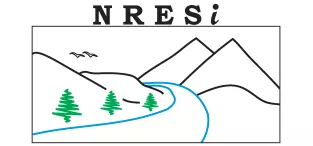
The Aleza Lake Research Forest is a 9000-hectare outdoor research facility and working forest 60 kilometres east of Prince George. The Research Forest provides research and education facilities and opportunities to UNBC and other groups for ecosystem and resource management studies.
The research and education programs emphasize harvest systems, biological diversity, climate change, and environmental monitoring. The Forest also provides a location for field research and education, and facilitates the development, implementation, and evaluation of research and education programs.
At 13 thousand hectares, the John Prince Research Forest is the largest research forest in North America and more than 32 times the size of Vancouver’s Stanley Park.
The Forest is also unique in North America in that it is the only research forest that is jointly managed by a university and a First Nation community. Situated 50 km north of Fort St. James, the JPRF lies between Lakes Chuzghun (Tezzeron) and Tesgha (Pinchi) in traditional Tl’azt’en territory and provides inter-disciplinary research opportunities for UNBC researchers and students and education and employment opportunities for the local community.

The Natural Resources & Environmental Studies Institute (NRESi) builds connections among university researchers and communities or external experts to advance understanding of natural resources and the environment. NRESi facilitates collaborative projects that address complex issues involving ecological processes, social values, and earth science systems.
Within NRESi’s membership, there are more than 70 researchers with diverse expertise, who engage in a wide range of project themes. NRESi supports and develops research opportunities focused on collecting baseline information, as well as applying that knowledge to practical problems.
Quesnel River Research Centre

The Quesnel River Research Centre acts as a hub of activity for a wide range of scholars who are seeking to improve understanding of topics relating to (and including human interactions with) the natural environment.
The Centre was established in 2002 as western Canada's only field station focused on the highly interdisciplinary domain of landscape ecology, funded by a generous endowment from Forest Renewal BC. The aim since then has been to support research and education spanning interactions between the life, terrestrial, freshwater and atmospheric environmental sciences, as well as socio-economic, historical and cultural studies. With this goal in mind, they offer a range of facilities and equipment, data, accommodation and local knowledge.